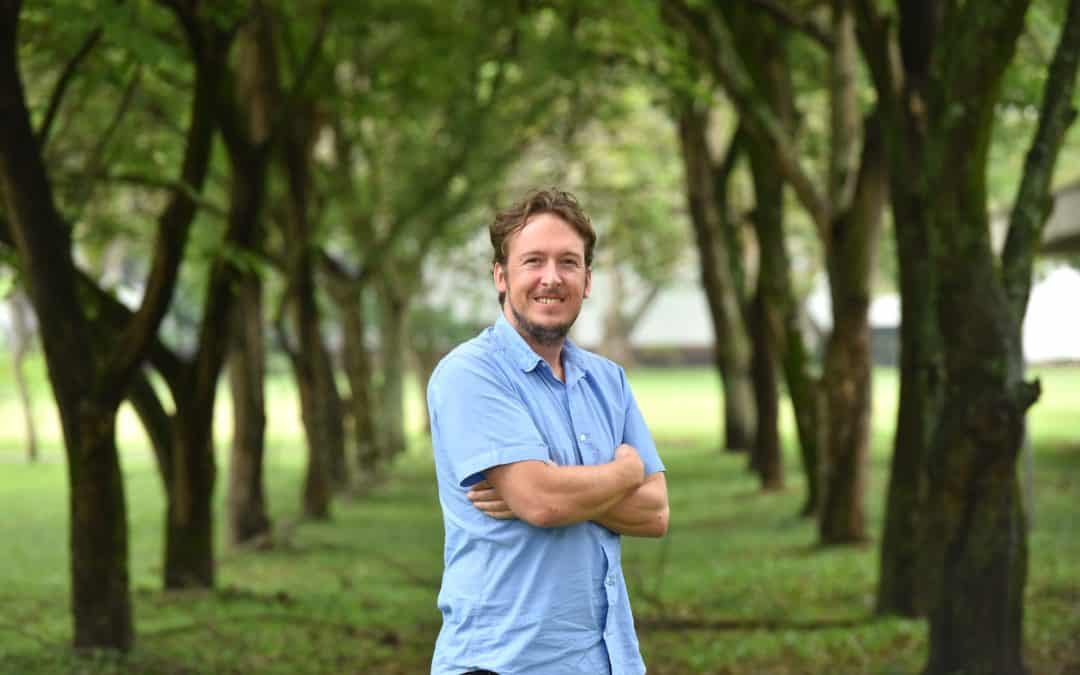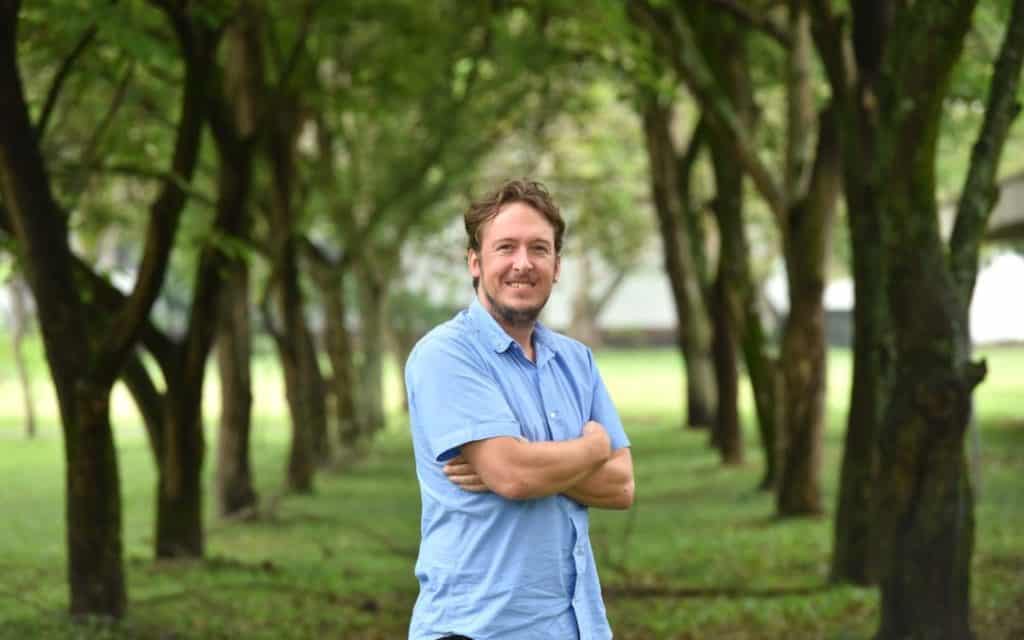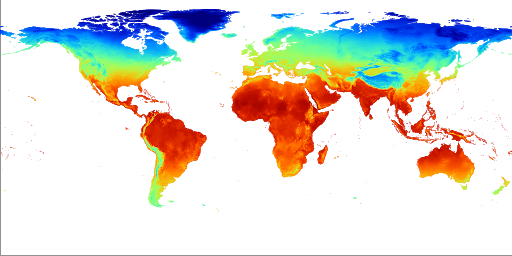`It was a huge data dump´ Andy Jarvis on giving away 30 years of research
I was working on toilets at the time. Suddenly, I found myself part of one of the biggest scientific movements in the history of CGIAR.
I was working on toilets at the time.
Suddenly, I found myself part of one of the biggest scientific movements in the history of CGIAR.
It was 2005. As a geospatial analyst, I had a short contract to map the best places to install latrines in rural Nicaragua.
While I was in Matagalpa, in the country’s coffee zone, one of my colleagues sent me a draft of a scientific paper we’d been working on, for me to edit.
Sitting there in front of my cabin, watching the clouds roll in, little did I realise that the paper was going to create a storm.
Our idea — like so many disruptive ideas — was fairly simple: With more information about temperature and rainfall at a local scale, we could develop better recommendations for farmers and researchers alike.
But where was the information? CIAT’s Peter Jones — the godfather of agro-climatology in CGIAR and a co-author of the draft paper — had spent decades tracking it down. He’d compiled climate data from more than 34,000 weather stations around the world.
With each data point, Peter and his team — which included me — could begin to make climate predictions for surrounding areas. We wrote algorithms to take account of changes in topography. Soon we’d mapped the whole of Latin America onto a grid; each square with its own climate characteristics.
This was exciting in its own right. But it was another scientist, Robert Hijmans, then at the International Potato Center, who helped drive the work to the next level. He’d also spent years compiling climate information from a range of sources around the world.
We joined forces and pooled our data, along with that from colleagues from other CGIAR centres. Before long, we were able to map the climate across the globe using a grid of 1 km by 1 km squares.
It became known as WorldClim.
We knew the data sets behind WorldClim could be put to all kinds of different uses — not just by agricultural scientists. Instead of keeping them under lock and key, what if we just gave them away?
Some people thought we were crazy, that we were surrendering 30 years’ worth of investment. They said sharing data wasn’t cool.
But neither were we.
We were data geeks who decided to run with the idea: We made the WorldClim information completely open, and released it to the world.
It was a huge data dump.
A few months after I’d finished mapping toilets in Nicaragua, the WorldClim methodology was published in the International Journal of Climatology. By this time, we’d also set up a website allowing any user to freely browse and download the climate data, for any site, and for any purpose.
It ended up being used by scientists all over the world to tackle challenges we never imagined.
From ways to map and control the spread of dengue fever, malaria, and Zika virus, to the ideal locations for installing wind and solar power, to habitat conservation for the mountain gorillas of East Africa, the WorldClim data sets were at the core.
The WorldClim team shot to scientific fame: The paper has received more than 11,000 citations to date, according to Google Scholar — more than what many scientists have achieved in a lifetime of publishing. It’s the second-most cited paper in CGIAR history.
Even today, WorldClim continues to exert enormous influence here at CIAT.
It’s at the foundation of a lot of the climate change work we do, feeding into the crop suitability models we use to assess the risks to farming around the world. It’s a big part of the work of multimillion-dollar research programmes like CCAFS, and the CGIAR Platform for Big Data in Agriculture.
We’ve also used it to search the globe for the habitats of nearly-extinct plants that need to be conserved in gene banks, and to map hydrology in river basins, to help us develop systems of payments for ecosystem services.
The list is long, and keeps growing.
All this is why I feel we need to challenge those scientists who don’t share their data.
There are still many who believe their careers rely on keeping it private. They think that sharing it will put them at a disadvantage, that others might use it to beat them to new discoveries.
WorldClim proves precisely the opposite: The very act of unleashing your data can also unleash your career. Fortunately, the movement for open data is now growing around the world.
Ten years later, I returned to Matagalpa, with a team from CCAFS. We’d been using WorldClim to figure out options for coffee farmers to adapt to climate change.
In one of the farmers’ fields was a toilet. On the door was the logo of the rural latrine project I’d worked on all those years ago.
It dawned on me how far we’ve come in terms of sharing scientific data, and how the WorldClim experience should help flush away any doubt that it’s the right thing to do.
*
This post is one of a series of CIAT blogs to mark Open Access Week 2017, a global event now entering its 10th year. Open Access Week is an opportunity for the academic and research communities to continue to learn about the potential benefits of Open Access, to share what they’ve learned with colleagues, and to help inspire wider participation in helping to make Open Access a new norm in scholarship and research.
Andy Jarvis is Research Director of CIAT’s Decision and Policy Analysis Research Area. See also: By breathing life into dormant data, we can see the future
Peter Jones is a CIAT Emeritus Scientist.
Robert J. Hijmans – is currently Associate Professor at UCDavis.
The CGIAR Research Program on Climate Change, Agriculture and Food Security (CCAFS), led by the International Center for Tropical Agriculture (CIAT), brings together some of the world’s best researchers in agricultural science, development research, climate science and Earth System science, to identify and address the most important interactions, synergies and tradeoffs between climate change, agriculture and food security. https://www.ccafs.cgiar.org/
October 26, 2017
Andy Jarvis
Research Director of CIAT’s Decision and Policy Analysis Research Area
CIAT
Cali Colombia
Latest news







